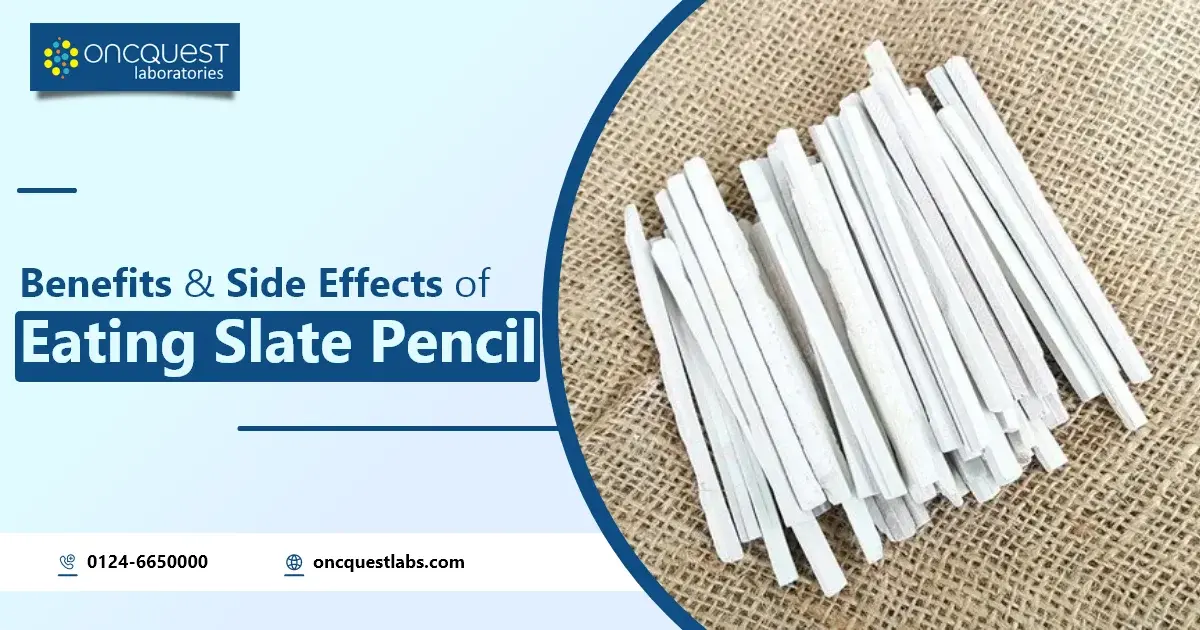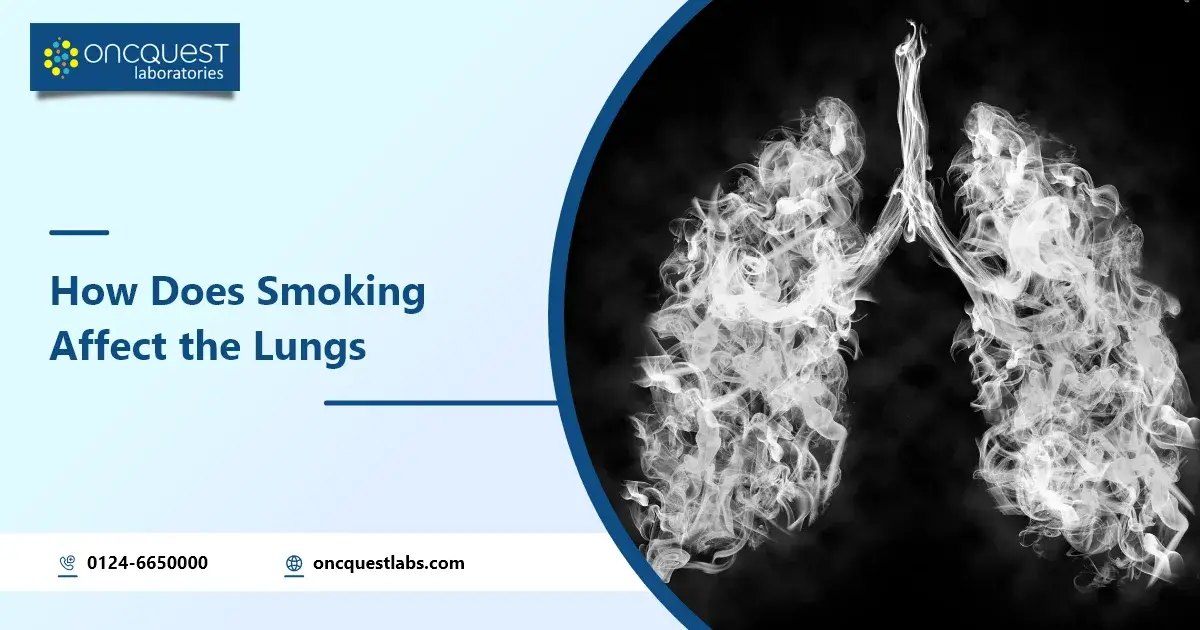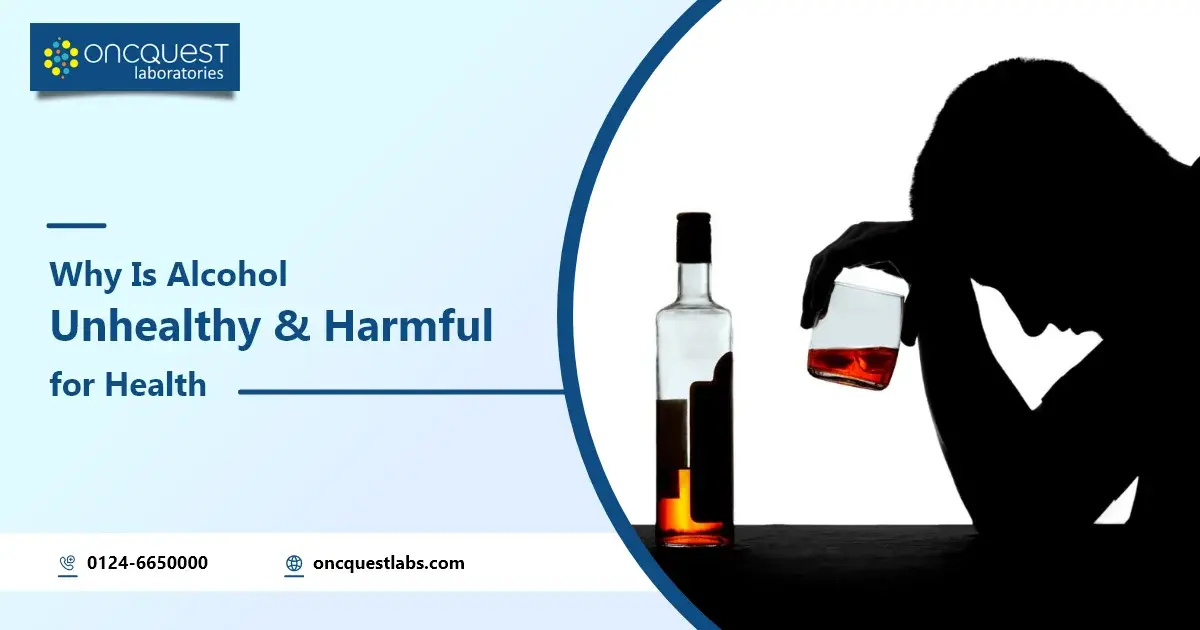“Eating slate pencils, often viewed as a cultural or habitual practice in certain communities, carries substantial health risks that are frequently overlooked. This unusual habit entails ingesting fragments of slate typically used for writing or drawing. While rooted in cultural traditions or psychological cravings, it can lead to serious health complications. This article delves into the Side Effects of Eating Slate Pencil, highlighting its adverse impact on digestive health, potential nutritional deficiencies, dental issues, and toxicity risks. Recognizing these dangers is essential for raising awareness and preventing the harmful consequences associated with this practice.
Contents
- 1 What are Slate pencils?
- 2 Reasons for Eating Slate pencil
- 3 Side Effects of Eating Slate Pencils
- 3.1 Gastrointestinal Issues
- 3.2 Nutritional Deficiencies
- 3.3 Dental Problems
- 3.4 Toxicity
- 3.5 Lead Poisoning
- 3.6 Intestinal Blockage
- 3.7 Choking Hazard
- 3.8 Gastrointestinal Bleeding
- 3.9 Malnutrition
- 3.10 Psychological Dependence
- 3.11 Mental Health Issues
- 3.12 Impact on Pregnancy
- 3.13 Social Stigma
- 3.14 Legal and Cultural Concerns
- 4 How to Remove Slate Pencil from Stomach
- 5 Eating Slate Pencil in Pregnancy
- 6 What are The Diseases Caused by Eating Slate Pencil
- 7 Conclusion
- 8 FAQs
- 8.1 Is it safe to eat slate pencils during pregnancy?
- 8.2 What should I do if I accidentally ate a slate pencil while pregnant?
- 8.3 Why are slate pencils harmful during pregnancy?
- 8.4 Are there alternative cravings or remedies for cravings during pregnancy?
- 8.5 How can I prevent cravings for non-food items like slate pencils during pregnancy?
What are Slate pencils?
Slate pencils, also known simply as chalk or chalk pencils, is a writing tool traditionally made from natural slate stone. It is characterized by its smooth texture and ability to leave distinct marks on slate or chalkboard surfaces. Typically, slate pencils are long, thin sticks or rods that can vary in color from white to gray, depending on the composition of the slate. Historically, slate pencils have been used extensively in classrooms and for writing on slate boards due to their durability and ease of use. They are also valued for their non-toxic nature, making them safe for educational purposes. However, outside of their intended use, slate pencils have gained notoriety for a different and concerning practice: some individuals consume slate pencil pieces.
This consumption is typically not for nutritional purposes but rather due to cultural habits, cravings, or psychological conditions such as pica syndrome, where individuals have an appetite for non-nutritive substances. Despite their natural origins, eating slate pencils can lead to significant health risks and complications, as explored further in this article.
Reasons for Eating Slate pencil
People may eat slate pencils for various reasons, often rooted in cultural practices or psychological conditions. Culturally, consuming slate pencils may be associated with traditions or customs where it is believed to have specific health benefits or is considered a delicacy. In some communities, it may also be a way to alleviate hunger or cravings, particularly among pregnant women experiencing pica syndrome. Psychologically, the consumption of non-nutritive substances like slate pencils can sometimes indicate underlying nutritional deficiencies or behavioral disorders. Understanding these reasons is essential for addressing the health risks associated with this practice effectively.
Side Effects of Eating Slate Pencils
Gastrointestinal Issues
Consuming slate pencils can cause significant gastrointestinal issues due to their indigestible nature and abrasive texture. It may lead to abdominal pain, bloating, and discomfort. The sharp edges of slate pencils can irritate the stomach lining, potentially causing constipation, diarrhea, or even intestinal blockage in severe cases. Regular ingestion can also disrupt normal digestive processes, contributing to long-term digestive problems. It’s crucial to avoid consuming non-food items like slate pencils to prevent these gastrointestinal complications and maintain overall health.
Nutritional Deficiencies
Eating slate pencils can result in nutritional deficiencies because it provide no essential nutrients beneficial to the body. Instead of supplying vitamins, minerals, or other vital elements, consuming slate pencils displaces nutrient-rich foods from the diet. This displacement can lead to imbalances that contribute to deficiencies over time. Such nutritional deficits may weaken the body’s immune system, reduce energy levels, and hinder overall health. Therefore, avoiding the consumption of slate pencils is essential to maintain a balanced diet and ensure adequate nutrient intake for optimal well-being.
Dental Problems
Chewing on slate pencils can lead to significant dental problems due to its abrasive nature and composition. The grittiness of slate pencils can wear down tooth enamel over time, leading to increased sensitivity, erosion, and potential cavities. Continuous chewing or biting can also damage gums, causing irritation and inflammation. Additionally, the habit of consuming slate pencils may promote unhealthy oral hygiene practices, further exacerbating dental issues. To maintain good oral health, it’s crucial to avoid chewing non-food items like slate pencils and adhere to regular dental care routines recommended by oral health professionals.
Toxicity
Eating slate pencils can pose risks of toxicity due to potential contaminants or impurities present in the slate material. While slate itself is generally non-toxic, the manufacturing process or additives in pencil may introduce harmful substances. These contaminants could include heavy metals or chemicals used in the production process, which may lead to adverse health effects when ingested. Symptoms of toxicity from slate pencil consumption can vary but may include nausea, vomiting, abdominal pain, and in severe cases, organ damage. Avoiding the consumption of slate pencils is crucial to prevent exposure to these potentially toxic substances and safeguard overall health.
Lead Poisoning
Lead poisoning can occur from consuming slate pencils due to potential lead content in the pencils, especially those with lead-based pigments or additives. Lead is toxic to the body and can affect multiple organs, including the brain, kidneys, and nervous system. Symptoms of lead poisoning may include abdominal pain, headaches, fatigue, and behavioral changes. In pregnant women, lead exposure poses risks to both maternal and fetal health, potentially leading to developmental issues in the baby. Immediate medical attention is crucial if lead poisoning is suspected, emphasizing the importance of avoiding non-food items like slate pencils for consumption.
Intestinal Blockage
Eating slate pencils can lead to intestinal blockage, a serious medical condition where the passage of food and waste through the intestines is obstructed. This occurs when large or sharp pieces of slate pencils cannot be properly digested or passed through the digestive tract. The blockage can cause severe abdominal pain, bloating, constipation, and nausea. In some cases, it may require surgical intervention to remove the obstruction and prevent further complications. Avoiding the ingestion of slate pencils is essential to reduce the risk of intestinal blockage and maintain gastrointestinal health.
Choking Hazard
Eating slate pencils poses a significant choking hazard, especially when consumed in large pieces or by individuals with swallowing difficulties, such as children or elderly people. The brittle and irregular texture of slate pencils can break into sharp fragments, which may lodge in the throat or airway, obstructing breathing. This can lead to choking, coughing, or even aspiration of the particles into the lungs, potentially causing serious respiratory problems. To prevent choking incidents, it is crucial to avoid chewing or swallowing non-food items like slate pencils and to educate individuals on the dangers associated with this practice.
Gastrointestinal Bleeding
Eating slate pencils can potentially lead to gastrointestinal bleeding, primarily due to their abrasive nature and sharp edges. When consumed, the rough texture of slate pencils can irritate and damage the delicate lining of the digestive tract, including the stomach and intestines. This irritation may cause small tears or wounds, resulting in bleeding. Symptoms of gastrointestinal bleeding may include vomiting blood or passing bloody stools, along with abdominal pain and dizziness. It is critical to avoid consuming non-food items like slate pencils to prevent such serious complications and to seek immediate medical attention if any symptoms of gastrointestinal bleeding occur.
Malnutrition
Eating slate pencils can contribute to malnutrition by displacing nutrient-rich foods in the diet. Since slate pencils provide no nutritional benefits and is not intended for consumption, regularly ingesting them can lead to deficiencies in essential vitamins, minerals, and macronutrients. This displacement can disrupt the body’s ability to absorb nutrients from proper food sources, potentially leading to imbalances and deficiencies over time. Malnutrition resulting from consuming non-food items like slate pencils can weaken the immune system, impair growth and development, and adversely affect overall health. Therefore, avoiding the practice of eating slate pencils is crucial to maintaining adequate nutrition and supporting optimal well-being.
Psychological Dependence
Eating slate pencils can lead to psychological dependence, especially in cases of pica syndrome or other related disorders. Pica is characterized by persistent cravings for non-nutritive substances like slate pencils, often driven by underlying nutritional deficiencies, stress, or psychological factors. Individuals may develop a compulsive habit of seeking out and consuming slate pencils to satisfy these cravings, which can lead to feelings of dependency and loss of control over their behavior. Psychological dependence on slate pencil consumption can interfere with daily life, affect mental health, and may require professional intervention to address underlying causes and promote healthier coping mechanisms.
Mental Health Issues
Eating slate pencils can contribute to mental health issues, particularly in cases where it leads to psychological dependence or exacerbates existing conditions. The practice of consuming non-food items like slate pencils can be associated with disorders such as pica, which may indicate underlying psychological distress or nutritional deficiencies. Persistent consumption can lead to feelings of shame, anxiety, or guilt, especially if it interferes with daily functioning or social interactions. Additionally, the potential toxicity of slate pencils can affect brain function and exacerbate symptoms of mood disorders or anxiety. Addressing mental health concerns associated with slate pencil consumption requires comprehensive support, including medical and psychological interventions to promote healthier behaviors and overall well-being.
Impact on Pregnancy
Eating slate pencils during pregnancy can pose serious risks to both the mother and the developing fetus. The ingestion of non-food substances like slate pencils can lead to nutritional deficiencies, potentially affecting the baby’s growth and development. Additionally, the contaminants or impurities present in slate pencils may harm the pregnancy and increase the risk of complications. Pregnant women are advised to avoid consuming slate pencils to ensure they receive adequate nutrition and to protect the health and safety of both themselves and their unborn children. Seeking medical advice is crucial if there are concerns about dietary habits during pregnancy.
Social Stigma
Eating slate pencils can carry significant social stigma, as it is often viewed as an unusual or unhealthy behavior. Individuals who engage in this practice may face judgment, misunderstanding, or even exclusion from social groups due to cultural norms or perceptions surrounding non-food item consumption. The stigma associated with eating slate pencils can impact self-esteem and social interactions, leading to feelings of shame or isolation. Addressing the social stigma involves promoting awareness and understanding of the underlying reasons behind such behaviors, emphasizing support and empathy rather than judgment. Encouraging open dialogue and education can help reduce stigma and foster a more inclusive environment for individuals affected by these habits.
Legal and Cultural Concerns
Legal and cultural concerns surround the consumption of slate pencils, varying widely depending on regional norms and regulations. In some cultures, eating slate pencils may be culturally accepted or even celebrated as a tradition or remedy. However, in many places, it may be prohibited or discouraged due to health risks and safety concerns. Legal implications can arise from the potential toxicity and health hazards associated with slate pencil consumption, prompting regulatory measures to protect public health. Addressing these concerns involves balancing cultural sensitivity with public health education and enforcement of safety regulations where necessary.
Understanding these side effects underscores the importance of discouraging the practice of eating slate pencils and promoting healthier dietary habits and behaviors.
How to Remove Slate Pencil from Stomach
Removing slate pencils from the stomach typically requires medical intervention, especially if ingestion has led to complications like intestinal blockage or other gastrointestinal issues. Here are steps medical professionals may take:
Endoscopy
Endoscopy is a medical procedure used to examine the digestive tract, including the esophagus, stomach, and upper part of the small intestine. It involves inserting a thin, flexible tube equipped with a light and camera (endoscope) through the mouth or nose. The endoscope allows doctors to visualize the inside of the digestive system in real time on a monitor. Endoscopy is commonly performed to diagnose and treat conditions such as gastrointestinal bleeding, ulcers, and polyps, and in cases where foreign objects like slate pencils need to be safely removed from the stomach.
Surgery
Surgery is a medical intervention involving invasive procedures to address health issues that cannot be resolved through non-invasive methods. It typically involves making incisions in the body to access internal organs or tissues, allowing surgeons to perform procedures such as removing foreign objects like slate pencils from the stomach. Surgical interventions vary in complexity and may range from minimally invasive procedures using small incisions and specialized tools to more extensive open surgeries requiring larger incisions. Surgery is often necessary in cases where endoscopic removal is not feasible or effective, ensuring the safe extraction of foreign objects and addressing associated complications to promote recovery and health.
Monitoring and Care
Monitoring and care following the removal of slate pencils from the stomach is crucial for ensuring recovery and managing any potential complications. After the procedure, medical professionals closely observe the patient for signs of complications such as bleeding, infection, or damage to the digestive tract. Monitoring may involve regular checks of vital signs, imaging tests to assess the condition of the stomach and intestines, and laboratory tests to monitor blood counts and organ function. Adequate post-procedural care includes providing pain relief, maintaining hydration and nutrition, and addressing any discomfort or concerns to support the patient’s recovery and overall well-being.
It’s crucial to seek immediate medical attention if you suspect someone has ingested slate pencils or any non-food item to ensure timely and appropriate treatment. Prompt intervention can help prevent serious complications and support recovery.
Eating Slate Pencil in Pregnancy
Eating slate pencil, also known as pica (the craving and consumption of non-food substances), especially during pregnancy, can be concerning for several reasons:
Nutritional Deficiency Concerns
Nutritional deficiency concerns, particularly during pregnancy, can arise due to inadequate intake of essential nutrients like iron and calcium. Iron deficiency can lead to anemia, affecting energy levels and increasing the risk of complications. Calcium deficiency may impact bone health and muscle function. These deficiencies are critical during pregnancy, as they can influence both maternal well-being and fetal development. It’s important for expectant mothers to maintain a balanced diet rich in these nutrients or supplements as advised by healthcare providers to support optimal health throughout pregnancy. Regular prenatal care helps monitor and address any emerging deficiencies early on.
Health Risks
Health risks associated with consuming non-food substances like slate pencils, a behavior known as pica, include digestive issues such as constipation or gastrointestinal blockages. Certain slate pencils may contain harmful contaminants or additives, posing toxicity risks when ingested in large quantities. Such behaviors can indicate underlying nutritional deficiencies or psychological factors like stress. Pregnant women experiencing pica should seek medical advice promptly to mitigate these risks and ensure both maternal and fetal health. Education and support from healthcare providers are crucial in addressing pica and promoting safe dietary practices during pregnancy.
Psychological Factors
Psychological factors contributing to pica, particularly during pregnancy, may include stress, anxiety, or unresolved emotional issues. Pica involves cravings for non-nutritional substances like slate pencils, which can be linked to these underlying psychological states. Addressing these factors through counseling or support services is essential for pregnant women experiencing pica, as it helps manage cravings and promotes overall well-being. Healthcare providers can offer guidance and strategies to cope with these psychological aspects, ensuring a healthier pregnancy journey for both the mother and the baby.
Medical Guidance
Medical guidance for pregnant women experiencing pica involves seeking professional advice from healthcare providers promptly. This includes a nutritional assessment to identify any deficiencies, particularly in iron or calcium. Healthcare professionals can recommend appropriate supplements or dietary adjustments to address these deficiencies safely. Regular prenatal check-ups are crucial for monitoring maternal health and fetal development, ensuring early detection and management of any emerging issues related to pica or nutritional needs. Collaborating closely with healthcare providers helps pregnant women maintain optimal health and reduces potential risks associated with pica cravings during pregnancy
Education and Support
Education and support for pregnant women experiencing pica are essential for promoting awareness and managing cravings effectively. Providing information about the risks associated with pica, such as digestive issues and potential toxicity from non-food substances like slate pencils, helps empower women to make informed choices. Healthcare providers offer guidance on maintaining a balanced diet rich in essential nutrients or supplements to meet pregnancy-related nutritional needs. Access to supportive resources and counseling services assists in addressing underlying psychological factors contributing to pica, ensuring holistic care and well-being throughout pregnancy.
If you or someone you know is experiencing pica cravings during pregnancy, it’s essential to seek medical advice promptly to ensure both maternal and fetal health are prioritized.
What are The Diseases Caused by Eating Slate Pencil
Eating slate pencils, a form of pica (the compulsion to eat non-food items), can lead to several serious health issues. Slate pencils contain harmful substances that can cause gastrointestinal problems, such as stomach pain, constipation, and intestinal blockages. Continuous ingestion may lead to lead poisoning, which can damage the nervous system, kidneys, and other organs. It can also cause anemia due to the disruption in the absorption of essential nutrients. Additionally, consuming slate pencils can lead to dental problems, including tooth erosion and decay. Psychological issues, such as stress and anxiety, often underlie pica behavior, making it essential to address both the physical and mental health aspects of this condition.
Conclusion
Consuming slate pencil, a form of pica, poses numerous health risks including digestive issues, dental problems, nutritional deficiencies, and potentially serious conditions like lead poisoning. These risks underscore the importance of seeking medical and psychological support to address underlying causes such as nutritional deficiencies or psychological factors. Education about the dangers of pica and access to proper prenatal care is essential in promoting healthier habits during pregnancy and ensuring the well-being of both the mother and the developing child. Avoiding the consumption of non-food substances is crucial for maintaining optimal health and reducing associated risks.
FAQs
Is it safe to eat slate pencils during pregnancy?
No, eating slate pencils during pregnancy can pose serious risks, including nutritional deficiencies, toxicity, and digestive issues that may harm both the mother and the baby. It is strongly advised to avoid consuming non-food items like slate pencils during pregnancy.
What should I do if I accidentally ate a slate pencil while pregnant?
Seek immediate medical advice. Inform your healthcare provider about the ingestion to assess any potential risks and receive appropriate monitoring or treatment to safeguard maternal and fetal health.
Why are slate pencils harmful during pregnancy?
Slate pencils provide no nutritional benefit and may contain contaminants that can harm maternal health and fetal development. It can also lead to digestive problems and increase the risk of obstetric complications.
Are there alternative cravings or remedies for cravings during pregnancy?
Yes, cravings during pregnancy are common. Opt for healthy alternatives like fruits, nuts, or snacks rich in vitamins and minerals to satisfy cravings while supporting maternal and fetal health.
How can I prevent cravings for non-food items like slate pencils during pregnancy?
Maintain a balanced diet, stay hydrated, and discuss any unusual cravings with your healthcare provider. Addressing nutritional deficiencies and seeking support for psychological cravings can help manage and prevent cravings for non-food items.





